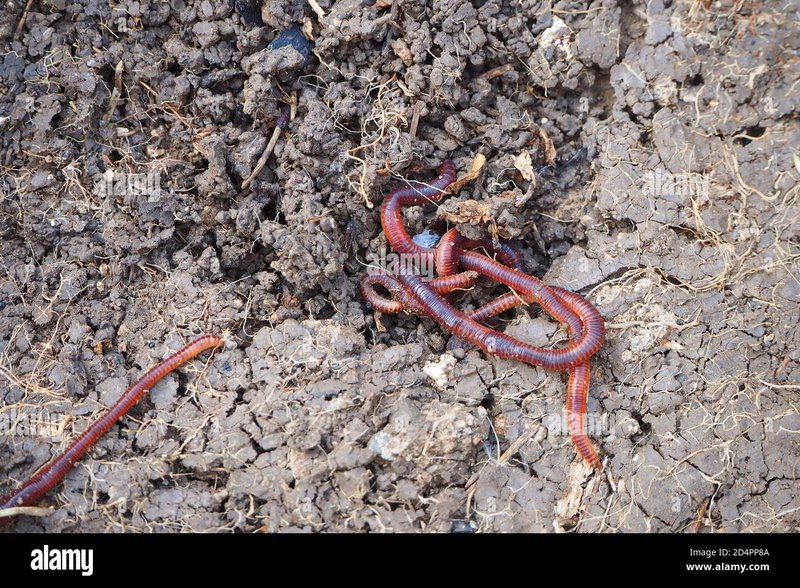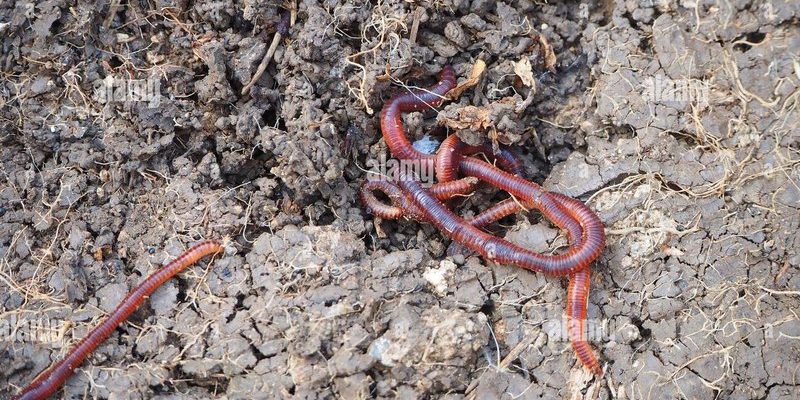
You know, earthworms might seem small and unassuming, but they play a huge part in the ecosystem. Their life span can vary quite a bit based on several factors, like species, environmental conditions, and even their diet. Think of it this way: just like people live longer in healthy conditions, earthworms thrive in rich, nurturing environments. So let’s dig deeper into the fascinating world of earthworms and find out just how long they live when left to their own devices.
Factors Affecting Earthworm Lifespan
Several elements influence how long earthworms can live in the wild. First off, their species matters a lot. There are over 7,000 species of earthworms, and each one has its own unique characteristics and life expectancy. For instance, while a common species like the Lumbricus terrestris might live around 4-8 years, others may only make it to 2 years.
Then you have to consider the environment. Earthworms are sensitive to temperature, moisture levels, and soil quality. In rich, moist soil, they can thrive and live longer. On the other hand, if they find themselves in compacted or dry soil—as you might see in urban areas or during droughts—they’re likely to face a much shorter life. So, if you’re hoping for a thriving earthworm population in your garden, make sure you’re providing a hospitable environment!
Typical Lifespans of Common Earthworm Species
Let’s take a closer look at some of the more common earthworm species and their lifespans. Here’s a quick rundown:
- Lumbricus terrestris: Commonly known as the common earthworm, this species typically lives about 4 to 8 years. They’re known for their role in improving soil structure.
- Allolobophora chlorotica: Also called the green garden earthworm, this one usually lasts around 3 to 6 years. They thrive in rich, moist environments.
- Eisenia fetida: Known as the red wiggler, this species is popular in composting and lasts about 1 to 5 years. They help break down organic matter effectively.
You might be wondering how researchers figure out these lifespans. Well, they study populations in various environments, observing them over time. This way, they can gather data on how different factors affect their longevity. It’s a bit like keeping tabs on a long-term science project!
The Role of Environmental Conditions
Environmental conditions play a crucial role in determining how long earthworms live. For example, in a well-maintained garden with healthy soil, earthworms can thrive. Here, they enjoy the right moisture levels, plenty of organic material to munch on, and protection from harsh elements.
On the flip side, if earthworms end up in compacted, nutrient-poor soil, their lifespan can take a serious hit. They need to be able to move freely through the soil to aerate it, eat decaying plant matter, and reproduce. Any impediment can lead to stress and a shorter life.
Additionally, temperature is a big deal. Earthworms prefer moderate temperatures—ideally between 55°F and 70°F (13°C to 21°C). Extreme heat or cold can be lethal. For instance, during a hot summer, if the soil dries out, earthworms will struggle to survive, as they need moisture to breathe and move.
Natural Predators and Threats
Earthworms have their fair share of natural predators. Birds, mammals, and other ground-dwelling creatures see them as a tasty snack. For example, many birds like robins and sparrows rely on earthworms as a staple in their diets. In ecosystems, this predation is a natural balance, but it also means that earthworms must be vigilant to ensure their survival.
In addition to predators, pollution and habitat destruction present serious threats. Pesticides, for instance, can harm earthworms by contaminating their food sources or directly affecting their health. If earthworms cannot adapt to these changes, their populations may dwindle, which would disrupt the ecosystems they help sustain.
How Do Earthworms Reproduce? A Look at Lifespan Extension
Interestingly, earthworm reproduction can also affect their lifespan. Earthworms are hermaphroditic, meaning they carry both male and female reproductive organs. This unique trait allows them to reproduce easily. They mate by exchanging sperm, and each worm can produce several cocoons throughout their life, which contain future generations of earthworms.
The more successful their reproduction, the better chance they have of maintaining their population, even if individual worms face threats. So essentially, while one worm may live for just a few years, its offspring could continue the lineage, effectively extending the “lifespan” of that genetic line in the wild.
Tips for Creating a Worm-Friendly Environment
If you’re interested in encouraging earthworm populations in your garden, there are several steps you can take. Here are some simple tips to create a worm-friendly environment:
- Maintain soil moisture: Regularly water your garden, especially in dry spells, but be careful not to overwater and create a soggy mess.
- Add organic matter: Incorporate compost or organic mulch into your soil. Earthworms love a buffet of decaying leaves and food scraps.
- Avoid chemicals: Minimize the use of pesticides and herbicides. They can harm earthworms and disrupt the balance in your soil.
By following these tips, you can create a happy home for earthworms, allowing them to live longer and contribute to a healthier ecosystem.
So, how long do earthworms live in natural conditions? The answer isn’t straightforward, as it varies depending on the species and their environment. However, most common earthworms can live anywhere from 1 to 8 years under ideal conditions. Remember, factors like soil health, moisture, temperature, and predators all play an integral role in determining their lifespan.
Earthworms may be small, but they have a big impact on our soil and, in turn, our planet. By understanding their lifespan and how to support them in our gardens, we can create thriving ecosystems. Just think of earthworms as nature’s little gardeners, working tirelessly to enrich the very earth we walk on!

